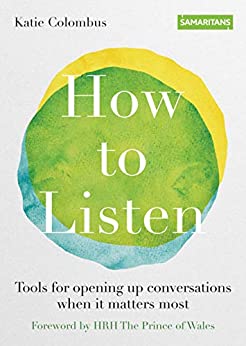I have a friend called Sameena, Sam for short. She’s what you might call a “pillar of the community.” She teaches literacy to young offenders. She chairs the committee running her local community center.
In fact, she’s been the treasurer for this, and the secretary for that, across a whole bunch of initiatives and organizations, throughout her adult life.
Here’s a couple things about Sam. One, she’s calm. Always. In a friendship now in its fourth decade, I have literally never heard her raise her voice in anger. This despite many provocations (often by me). She negotiates and persuades like a pro, but she never, ever, loses it.
What Listening Means
The other is that she listens. Really listens. We shoot the breeze like any other old friends do. But when the conversation turns serious – as it easily can between two people who trust each other – she changes.
Suddenly, I have the whole of her attention. She maintains eye contact, waits until I’ve finished what I’m saying, then summarizes what I’ve just said. And then she helps me find a way to sort my life out.
Learning to Listen
Truth be told, she unnerves me, even after all these years. Because as talents go, her ability to listen actively, almost forensically, is much rarer than it really ought to be. And I don’t encounter it enough.
I thought of Sam when reading “How to Listen: Tools for Opening up Conversations When It Matters Most,” by Katie Columbus and The Samaritans. The Samaritans are a U.K. charity specializing in providing emotional support to people contemplating suicide. If any organization knows the importance of effective listening, it’s them.
And the good news from the book is that you don’t have to be a naturally good listener, like Sam. We can all learn how to listen – and understand – better.

Knowing When to SHUSH
So what’s the trick? Well, there isn’t one. Not an easy one, anyway. In fact, important conversations often founder because the person who should be listening is too eager to intervene and “fix things.”
Instead the book lays out five key principles involved in listening well: Show you care, Have patience, Use open questions, Say it back, and Have courage. The acronym drawn from these principles – SHUSH – may seem a little forced. But it does no harm to remember that being quiet often does more to open up a difficult conversation than anything else.
Why Listening Matters
For sure, not everyone will find themselves having a conversation with life-or-death consequences, as the Samaritans do. But even in less-testing situations, a book like this can be a big help.
Years ago, I was let go by a multinational corporation. The manager who delivered the news did so while checking his phone. As I haltingly began to ask the first of my many questions, his attention wandered to the traffic outside the office.
Not everyone finds emotional intelligence easy or natural. But at that moment, all I wanted was to be listened to, for five minutes. It wouldn’t have changed a thing. I’d still have been out of a job. But I might at least have left the place thinking that I’d been valued.
And that’s why this book is worth reading. It shows you what to do to build trust, to make a difference, and show you care. And in a world in which human connection suddenly seems much more important, those skills are vital.
Download Our “How to Listen” Book Insight
Mind Tools reviews the best new business and self-development books, alongside the tested classics, in its monthly Book Insight for the Mind Tools Club. So, if you’re a Club member or enterprise licensee, you can download or stream the full “How to Listen” Book Insight in text or audio format.
If you haven’t already signed up, join the Mind Tools Club and gain access to all 2,400+ resources, including approximately 400 Book Insights. For a corporate solution, take a look at our Mind Tools for Business site.
How do you “actively” listen? What are good examples of it? How did being listened to – or not – make a difference in your life? Join the discussion below and let us know!



